Aussie family cars used to wear Holden and Ford badges with nameplates like Commodore and Falcon, but in 2022, preferences have shifted to SUVs.
It’s now all about the Toyota RAV4 and Mazda CX-5 – two nameplates that have been duking it out for years for the best-selling SUV crown.
They aren’t the only game in town however. Hyundai has the Tucson, Kia has its Sportage, Ford has the Escape and Mitsubishi has just launched its new-generation Outlander.
And while the pioneering Outlander plug-in hybrid electric vehicle gets all the headlines, there are still exclusively petrol-powered options available for those that might not be able – or willing – to make the step to an electric future.
But with so many worthwhile competitors in a hotly-contested field, should the Mitsubishi Outlander be on your consideration list?
Mitsubishi Outlander 2023: LS 7 Seat (2WD)
| Engine Type | Inline 4, 2.5L |
|---|---|
| Fuel Type | Unleaded Petrol |
| Fuel Efficiency | 7.7L/100km (combined) |
| Seating | 7 |
| Price From | $36,190 - $43,120 |
| Safety Rating |
|
What does it look like?
Let’s be honest, the old Mitsubishi Outlander wasn’t exactly a looker, especially when compared with much more stylish offerings like the Mazda CX-5 and even the Peugeot 3008.
The latest Outlander, however, does a lot to remedy the drab, dreary and downright derivative look of the old car thanks to a box-fresh design that is much more sci-fi than low-fi.
For starters, the Mitsubishi 'dynamic shield' front grille sits boldly and proudly up front, and contours to the shape of the car like the skin-tight 'S' emblem on Superman’s prodigious pectorals.
Flanking the grille are two slender daytime running lights and chunky headlight clusters, which combine with the front kick plate for a rugged and tough look.
.jpg)
It can’t be understated how much the front LED lighting signature also elevates the Outlander, ensuring it looks a bit more premium and a little less ordinary.
From the side, the off-road-ready appearance is amplified by subtle wheel-arch character lines, as well as a high shoulder, but I reckon the wheels in the LS grade look a little too dull.
Maybe it’s the thick 60-section side walls that make the 18-inch wheels look a bit too small, but I'm also not a fan of the wheel designs that are more ‘meh’ than ‘yeah’.
And if there’s a bad angle on the new Outlander, we reckon it’s the rear.
.jpg)
The slim tail-lights, roof-mounted rear spoiler and contrasting bash plate look just … fine? But there’s no unique design flourishes or eye-grabbing details, it just seems like Mitsubishi has played it too safe at the rear.
Contrast this with the Hyundai Tucson, Kia Sportage and even Toyota RAV4, and you’ll see that these SUVs stand out with more in-your-face designs. But of course, whether they pull that off is up to individual taste.
And inside, the Outlander continues the safe and no-frills design aesthetic.
Covered in a sea of black, the cabin of the Outlander LS is a bit of a mish-mash of several materials and textured surfaces that don’t add up to anything exciting.
.jpg)
Take the door trim for example, there’s synthetic carbon-fibre for the window-switch surrounds, soft leather for the armrest, fabric for the tops of the door, and then hard plastic nearly everywhere else – it’s all just a bit messy in execution.
Elsewhere though, the design comes together much better, like the centre stack that is crowned by a clear, crisp and snappy multimedia touchscreen; the comfortable steering wheel with all the functions that fall right in hand; and the easy-to-use climate controls that are a cinch to operate, even while on the move.
Overall, I like the Outlander’s style, which ends up being a bit like vanilla ice-cream – it’s a dependable and a safe choice, but nobody is going to write home about it.
I also think our test car’s Titanium colour does it no favours, and I'd absolutely be ticking the option box for a flashier hue like Red Diamond ($940) or Cosmic Blue ($740).
How does it drive?
As a mid-size SUV, you shouldn’t expect the Mitsubishi Outlander to be the most dynamically capable – and it isn’t, even by family car standards.
That isn’t to say the Outlander feels bad behind the wheel, quite the contrary actually.
The steering offers enough feedback to make zipping through traffic on a school run a breeze, but take any sweeping corners at speed and, well, there’s no escaping the jacked-up ride height, front-drive set-up and 1600kg weight.
.jpg)
Steering feel also strays towards the light side of things, which makes navigating around town at slower speeds a breeze, but it does make it feel a little too disconnected for our tastes.
Throttle response is good though, and the 135kW/245Nm 2.5-litre engine offers enough grunt around town – even if it lacks a bit of oomph when things get closer to freeway speeds.
And the continuously variable transmission (CVT), which has been maligned in the past for feeling too artificial, actually does a decent job of not feeling too elastic.
.jpg)
But driving dynamics is not the top reason to buy a family SUV, and it's all the other areas behind the wheel where the Outlander really shines.
For starters, the cabin ergonomics are excellent, with all controls falling easily to hand and it makes operating climate controls and multimedia a breeze – even while on the move.
There are also five drive modes to select from – Normal, Eco, Tarmac, Snow and Gravel – which will slightly change up how the Outlander feels underfoot.
I didn’t get a chance to test out the Snow or Gravel settings, and didn’t feel too much variation between Normal, Eco and Tarmac modes, but these drive modes will surely get more use if I had the car longer than a week.
Finally, let’s talk comfort, because the Outlander soaks up bumps like a sponge.
And a key part to this is the thick 60-section sidewalls which might make the 18-inch wheels look a bit small, but are great at absorbing any road imperfections.
It’s not as comfortable and serene as a luxury car mind you - the Outlander will still send jolts into the cabin when attacking humps at speed or when a pothole catches you unprepared, but overall, Mitsubishi’s mid-size SUV feels pretty good.
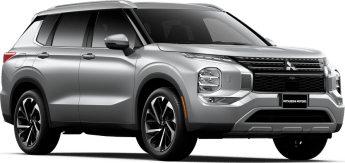
How spacious is it?
Measuring 4710mm long, 1862mm wide, 1740mm tall and with a 2706mm wheelbase, the Mitsubishi Outlander falls into the larger end of the mid-size SUV spectrum.
And that’s for a very good reason, because the Outlander is available with seating for up to seven – like in our test car.
Before you get your hopes up though, no one but kids will be comfortable back there (it’s more of a 5+2 than a true seven-seater), so don’t expect the Outlander to rival something like a Kia Carnival or Honda Odyssey for space and adult-ferrying capabilities.
.jpg)
Heck, it’s not even on par with cars like the Toyota Kluger, Hyundai Santa Fe or Kia Sorento, but it is one of the only mid-size SUVs with seating for seven, and that flexibility does have its advantages.
For starters, the seats are great in a pinch, for when you might occasionally need to transport more than immediate family.
And when not in use, the third-row seats fold down flat – with a handy storage spot under the floor for the headrests and cargo blind to tuck away – and boot space will swell from 163 litres to 478L.
Fold down the second row as well, and you will find a cavernous 1473L of storage volume, which is more than enough for the weekend Bunnings trip or occasional house move.
Of course, the front seats don’t suffer from the same lack-of-space issues, with plenty of adjustability for the driver and front passenger to get comfortable.
Door pockets will take large bottles, there are two cupholders, a wireless charging tray, underarm storage cubby and even an overhead sunglasses holder.
The rear seat also affords a lot of space – even for my six-foot (183cm) frame – and the middle seat is also more usable than most thanks to an unobtrusive tunnel.
There are door pockets, back-seat map pockets, air vents and a pair of charging ports (one USB-A and the other USB-C) to keep occupants busy, and if the middle seat isn’t being used, you can fold down an armrest to reveal two cupholders.
In the third row, there isn’t much space, like we mentioned already, but occupants back there do get a set of cupholders for their drinks.
How easy is it to use every day?
In our week with the Outlander, we used the car daily to take our toddler to and from childcare, as well as the occasional commute into the office (hybrid working FTW!) and trip to the shops.
Operating the Mitsubishi mid-size SUV is a no fuss affair, in fact there was hardly a learning curve with the Outlander at all - for both me and my wife who is less familiar with cars.
While that might make the Outlander seem a bit boring, we actually think it is a good thing because juggling a family means you have so much taking up brain space already, who needs to add a complicated car to the mix too?
The rear doors open wide and the aperture is plenty big to load our toddler in and out of without any hassle, nor is there any strain on the back getting him up from the car seat.
.jpg)
Fabric seats might also seem risky with a child, but the Outlander's pews are covered in hard wearing materials that let us wipe away spilt milk, biscuit crumbs and banana stains without any trouble.
The boot is large and offers the flexibility of seven seats when needed, and we fit birthday presents, a supermarket shop, nappy bag and even a pram during our time with the car.
The one point we can knock the Outlander LS for is the lack of a powered tailgate. It's the sort of feature that does make juggling a kid and shopping really easy. It is a shame that it was offered in earlier cars, and we can only hope Mitsubishi reintroduces this feature down the line once parts become more readily available.
.jpg)
How safe is it?
Mitsubishi’s Outlander boasts a maximum five-star ANCAP safety rating from testing in January, 2022, with stand-out results in the child occupant protection test.
Each Outlander is also kitted out with a long list of advanced safety equipment, including front autonomous emergency braking (AEB) with pedestrian detection, blind-spot monitoring, lane keep assist, adaptive cruise control, a reversing camera, front and rear parking sensors, and traffic sign recognition.
.jpg)
As a result, ANCAP has awarded the 2022 Outlander an 83 per cent score in the safety assist category.
And the LS grade adds rear cross-traffic alert, automatic headlights, rain-sensing wipers, high-beam assist and rear AEB, while the only safety feature missing is a surround-view monitor that is offered on Aspire variants and up.
And of course, as a mid-size SUV, there are ISOFIX points and top-tether mounting points, which we found a breeze to use in our time with the car.
What’s the tech like?
Priced at $39,490 before on-road costs, our Outlander LS seven-seater is only one rung up on the Mitsubishi mid-size SUV ladder, out-equipping the entry-level ES that's priced from $35,990.
Is that a bit of a bargain? Well for $40,000, buyers can easily get into a Ford Escape, Honda CR-V, Hyundai Tucson, Kia Sportage, Mazda CX-5, Subaru Forester or Toyota RAV4 – so this Mitsubishi’s price is pretty line-ball with what is expected in the category.
Mitsubishi does serve up the Outlander with a long list of standard equipment though, some of which you won’t see until you get into a top-spec mid-size SUV competitor.
For starters, there’s 18-inch wheels, keyless entry, push-button start, 7.0-inch multi-function colour driver’s display, dual-zone climate control with rear air vents, cloth seats, rear privacy glass, front and rear parking sensors, and LED exterior lighting.
.jpg)
Of note, the Outlander LS made available in the latter half of 2022 loses the powered tailgate as seen in earlier cars due to the ongoing parts shortage.
Handling the multimedia is a 9.0-inch touchscreen with satellite navigation, digital radio and Bluetooth streaming, as well as wireless Apple CarPlay and wired Android Auto.
You’ll also find a wireless smartphone charger, which is handy for those using cable-free Apple CarPlay, but also handy to just juice up any compatible phone while on the go.
While a wireless charger is a decidedly high-end feature, the manually adjustable front seats are not, and neither is the non-powered tailgate.
.jpg)
Keep in mind the Outlander LS’ sub-$40,000 price though, and you’ll understand that compromises had to be made somewhere, but overall Mitsubishi has covered all the bases for must-have equipment in a modern family runabout.
But the best way to judge the Outlander LS’ value equation might be to see how it stacks up against the 2023 Nissan X-Trail, which shares the same platform, engine and some technologies.
At $39,790, the X-Trail ST seven-seat is only $300 more than this Outlander LS, but has smaller 17-inch wheels and misses out on front parking sensors, but does gain the sure-footedness of all-wheel drive.
Another thing to bear in mind, the Outlander LS is one of the cheapest new seven-seaters you can buy right now, beaten only by the soon-to-be-replaced Honda CR-V VTi 7 (from $40,700 driveaway) and one-size up LDV D90 (from $37,990 driveaway).
How much does it cost to own?
Like all new Mitsubishis sold in Australia, the 2023 Outlander comes with a landmark 10-year conditional warranty that covers 200,000 kilometres of travel.
This surpasses the industry standard five-year/unlimited kilometre assurance period offered by top 10 brands like Toyota, Mazda, Ford and Hyundai, while also beating Kia’s seven-year program.
But it means all scheduled servicing needs to be done at a Mitsubishi dealer, and it excludes fleet customers.
.jpg)
Scheduled service intervals for the Outlander LS are every 15,000km or 12 months, whichever occurs first.
According to Mitsubishi’s capped-price service program, the first five years of ownership will set buyers back $995, averaging $199 a year.
Keep in mind, service prices from then on can be significantly more expensive, with the 10-year/150,000km service priced at $799 according to Mitsubishi’s data.
Verdict
Mitsubishi’s Outlander LS might not break the mould in any meaningful ways, but then again, does it need to?
This Mitsubishi mid-size SUV offers up practicality, comfort, value and safety in a package that doesn’t look too out there for those that might be a little more conservative in their tastes.
Some would call it bland, maybe even boring, but to us the Outlander is the safe, no-frills choice in the booming mid-size SUV market, and you’ll certainly be able to get into one sooner than some Toyota RAV4s.
Pricing Guides



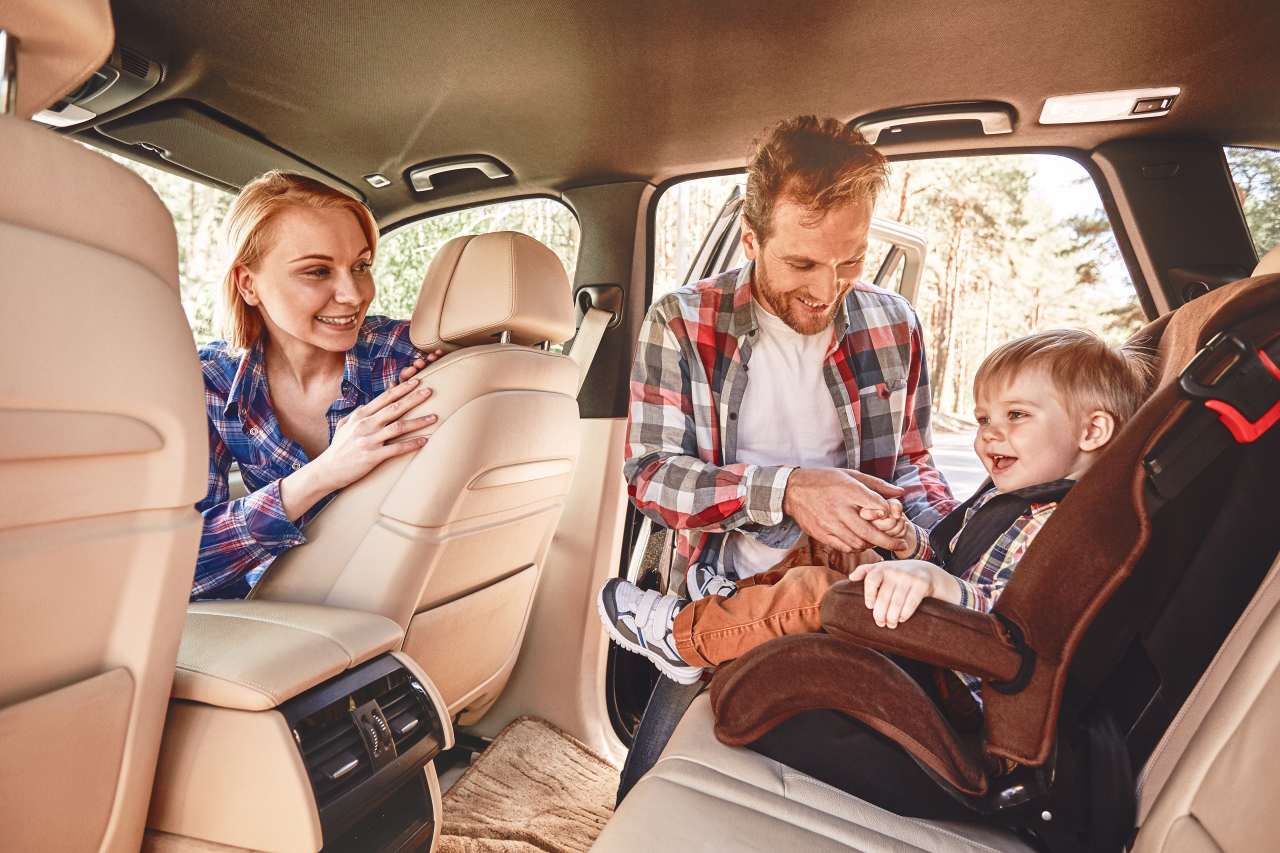
.jpg)

.jpg)
.jpg)
.jpg)
.jpg)
.jpg)
.jpg)
.jpg)
.jpg)
.jpg)
.jpg)
.jpg)
.jpg)
.jpg)
.jpg)
.jpg)
.jpg)
.jpg)


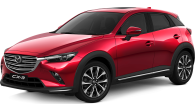
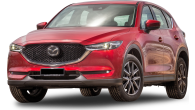





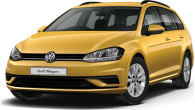











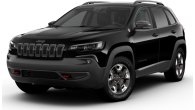
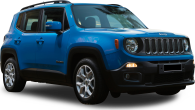







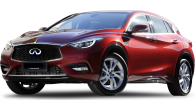





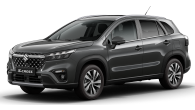
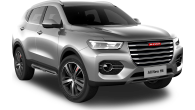

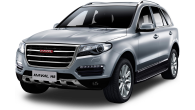



 copy.png)

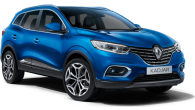




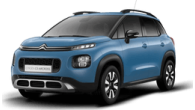







.jpg)


.jpg)
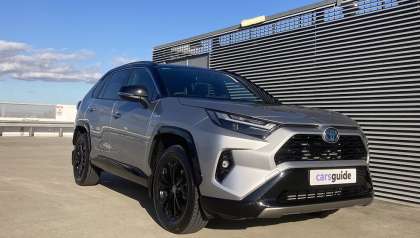



.jpg)

.jpg)
Comments